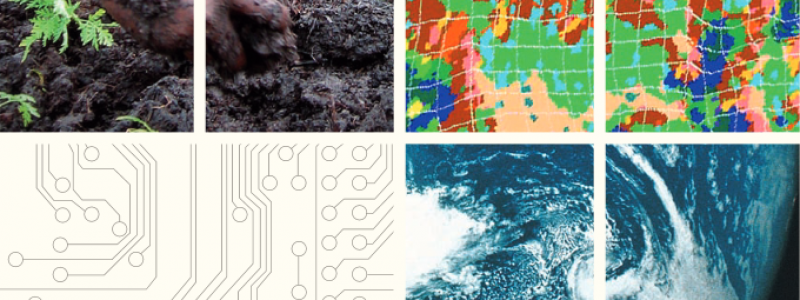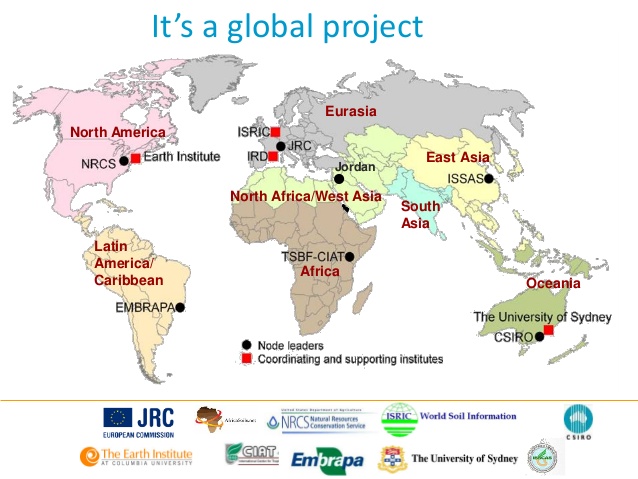
 The GlobalSoilMap.net project aims to make a new digital soil map of the world using state-of-the-art and emerging technologies for soil mapping and predicting soil properties at fine resolution. This new global soil map will be supplemented by interpretation and functionality options that aim to assist better decisions in a range of global issues such as food production and hunger eradication, climate change, and environmental degradation. It is an initiative of the Digital Soil Mapping Working Group of the International Union of Soil Sciences (IUSS) and is led by academic and research centres in all continents.
The GlobalSoilMap.net project aims to make a new digital soil map of the world using state-of-the-art and emerging technologies for soil mapping and predicting soil properties at fine resolution. This new global soil map will be supplemented by interpretation and functionality options that aim to assist better decisions in a range of global issues such as food production and hunger eradication, climate change, and environmental degradation. It is an initiative of the Digital Soil Mapping Working Group of the International Union of Soil Sciences (IUSS) and is led by academic and research centres in all continents.
Video: Hannes Reuter explains how the GlobalSoilMap team is creating digital soil property maps, important for assuring food security.
The African leg of the project was launched in Nairobi in January 2009. The global project was launched in New York in February; the programme, presentations and speaker biographies are all on www.globalsoilmap.net(deleted)
Work has started in sub-Saharan Africa, through an $18 million grant awarded to the International Centre for Tropical Agriculture (CIAT) from the Bill & Melinda Gates Foundation and the Alliance for a Green Revolution in Africa (AGRA) to create the Africa Soil Information Service (AfSIS). “The best science and technology available must be deployed immediately if Africa’s soils are to be managed in a sustainable manner. Let there be no mistake about the significance of this wonderful project,” said Kofi Annan, chairman of AGRA and former UN Secretary-General, in a recent statement. “This initiative will provide farmers, policy makers, and scientists crucial information on how to address declining soil fertility in regions such as sub-Saharan Africa,” explains Pedro Sanchez, director of AfSIS. “Soil mapping can help with that because it is one of the pillars to the challenge of sustainable development,” according to Jeffrey Sachs, director of the Earth Institute at Columbia University (USA) and special advisor to the UN Secretary-General.
Nodes include: North America - Jon Hempel (USDA - Natural Resources Conservation Service), Latin America - Lou Mendonca Santos (EMBRAPA Solos), Europe - Luca Montanarella (Joint Research Centre of the European Commission), Oceania - Neil McKenzie (CSIRO Land and Water), East Asia -Gan Lin Zhang (Chinese Academy of Sciences). Nodes in West-Asia, North Africa and South Asia are still pending.
